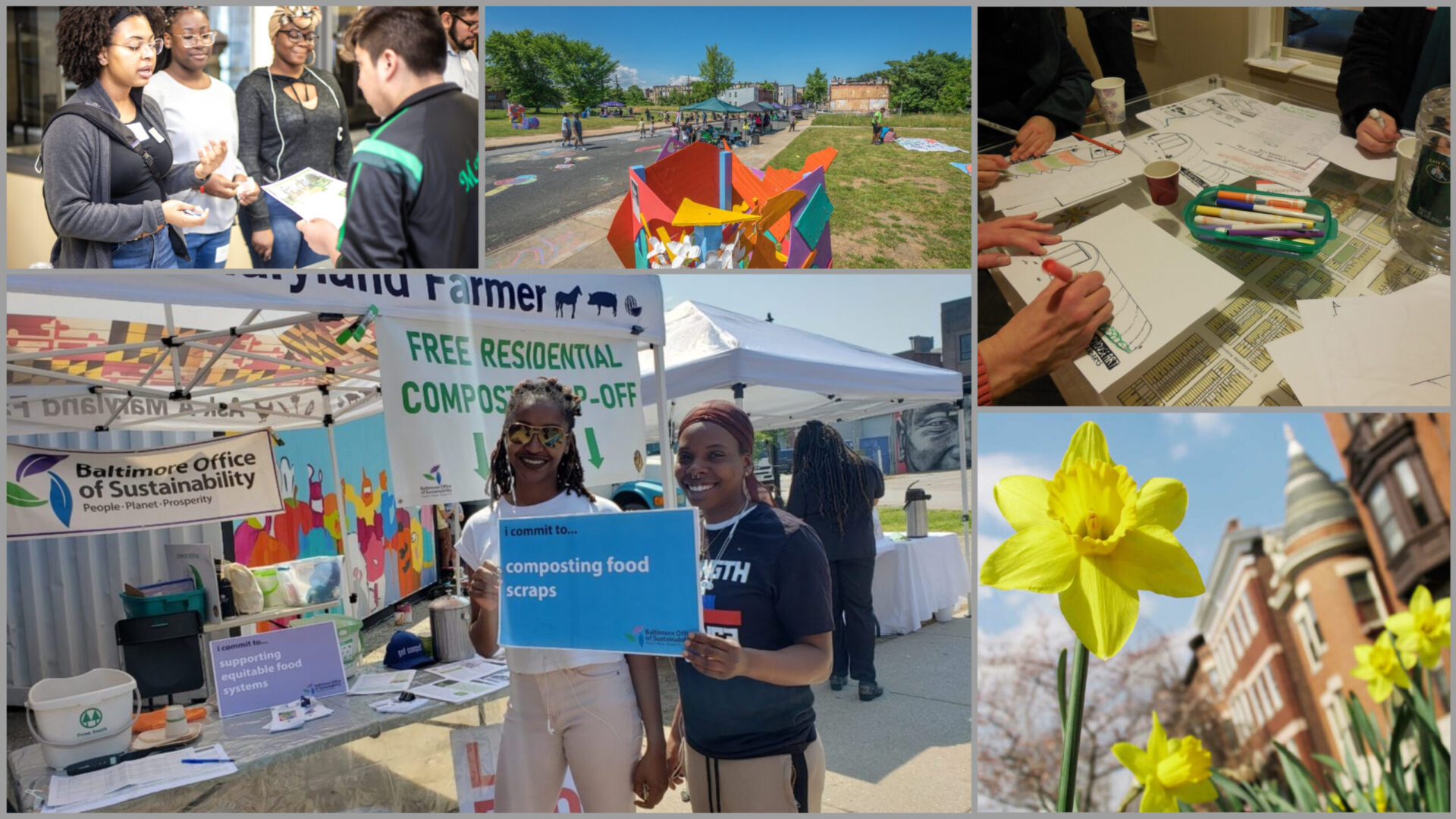On Wednesday, September 5th, 2018, Mayor Catherine E. Pugh announced a new partnership with the Natural Resources Defense Council (NRDC) with funding from The Rockefeller Foundation to address Baltimore’s food waste and recovery policies. Additionally, Mayor Pugh announced the release of the Baltimore Food Waste & Recovery Strategy which was produced by the Baltimore Office of Sustainability in coordination with the Institute for Local Self-Reliance with an aim to reduce food waste, rescue food for those in need, and help build a local economy through composting. Support from NRDC and The Rockefeller Foundation will help implement this groundbreaking strategy document.
“Locally based composting, keeps dollars in the community, promotes strong neighborhoods, cleans and enriches Baltimore’s soil, and importantly, supports local food production and food security. We’re proud that Baltimore is taking a leadership position in this national conversation on how we can reduce food waste and enhance composting,” said Mayor Pugh. “Being more intentional about food waste and recovery supports Baltimore’s commitment to innovation, expands workforce capacity and addresses access to healthy affordable food.”
The Baltimore Food Waste Recovery Strategy sets forth a path for Baltimore City to reduce the amount of food that is lost or discarded by residents and local businesses, boost food donation citywide, and expand community and commercial composting of food scraps. Among other goals, the strategy aims to reduce commercial food waste in Baltimore City by 50% and residential food waste by 80% by 2040.
Together with NRDC, Baltimore City will implement the multifaceted Baltimore Food Waste Recovery Strategy, which includes:
- Educating residents about food waste and their role in addressing the issue through NRDC’s Save the Food public service campaign with The Ad Council, and complementary community engagement efforts.
- Encouraging surplus food donation by local businesses and engaging public health inspectors and other stakeholders to address the food rescue resources gap.
- Encouraging and incentivizing residents and businesses to recycle and compost organics and food scraps.
Baltimore joins Denver in partnering with NRDC and The Rockefeller Foundation as part of their Food Matters project, which aims to work with cities around the country to tackle food waste at the local level.

